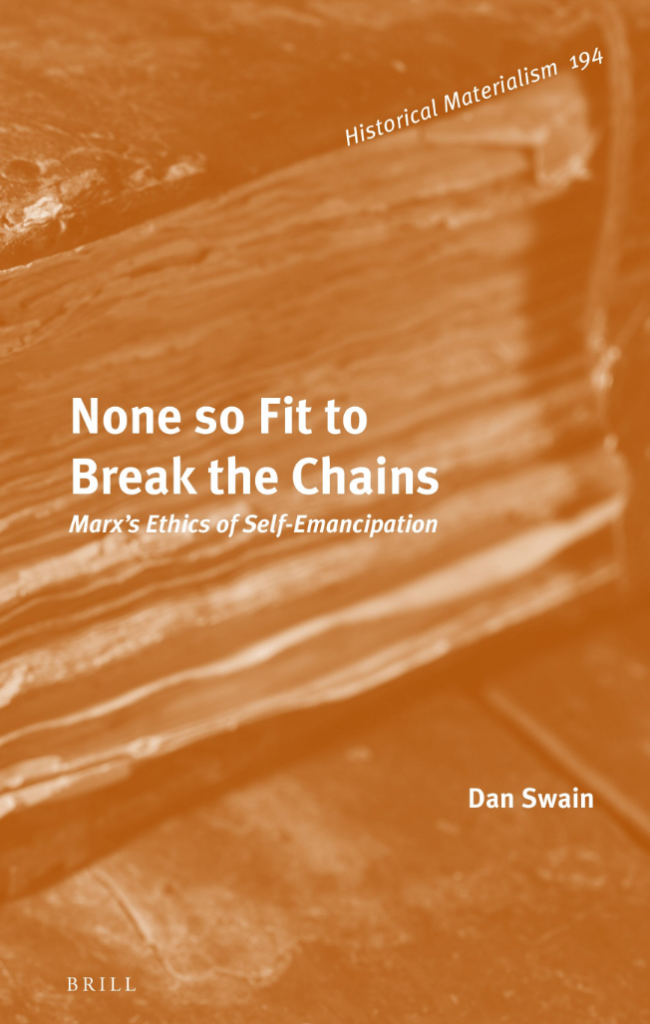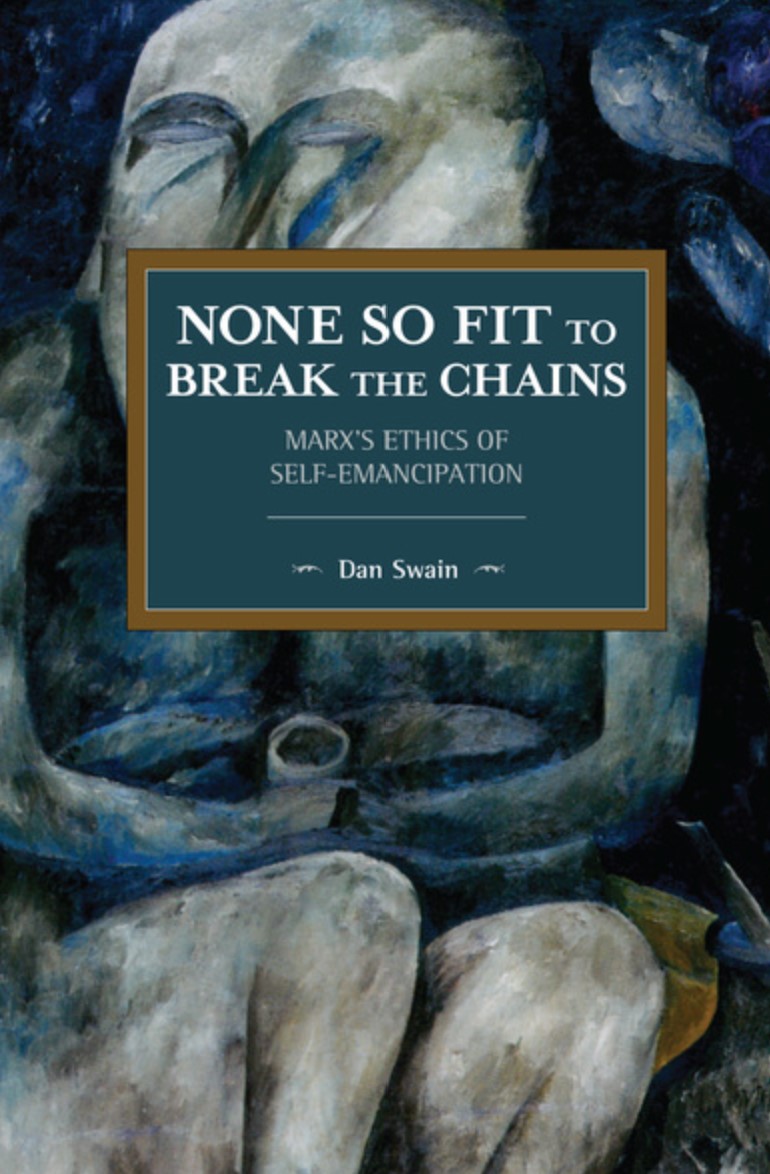Dan Swain
In None so Fit to Break the Chains Dan Swain offers an interpretation of Marx’s ethics that foregrounds his commitment to working-class self-emancipation and argues for the continued relevance of this principle for contemporary politics. Self-emancipation is frequently overlooked in discussions of Marx’s ethics, but it deeply influenced his criticism of capitalism, his approach towards an alternative, and his conception of his own role as activist and theorist.
Foregrounding self-emancipation offers new perspectives on existing debates in the interpretation of Marx, such as the meanings of concepts like alienation, exploitation and utopianism, and can also offer broader insights into the relationship between critical theory and practice that have an enduring relevance today.
Biographical Note
Readership
All interested in Marx and Marxism, and anyone with an interest in the relationship between critical theory and emancipatory practice, the role of ideals and utopias in political theory, or the ethics of political practice.
Table of Contents
Acknowledgements
Note on References
Introduction
1 ‘Our notion from the very beginning’
2 Ethics and Politics
3 Overview of Chapters
1 Prometheus Plus Spartacus
1 Introduction
2 The Action of Freedom
3 Labour and Objectification
4 Democracy
2 From Freedom to Self-Emancipation
1 Introduction
2 Reckonings
3 Linking the Present to the Future
4 Educating the Educator
3 Historical Materialism and Self-Emancipation
1 History and Prophecy
2 False Starts
3 History as Constraint
4 It’s Been Coming! – Determination and Inevitability
5 History and Strategy
4 Communism, Utopia and Vision
1 Introduction
2 Communism as Vision
3 Whose ideals, whose society?
4 Utopia Negativa
5 Exploitation, Justice and Freedom
1 Introduction
2 Exploitation and Justice
3 Mutato Nomine de te Fabula Narratur
4 The Wedges of Hephaestus
6 Alienation, Human Nature, Human Good
1 Introduction
2 Marx and Human Nature
3 Revolutionary Aristotelianism and its Limits
4 The Human Bad
7 Denouncing the Abyss
1 Politics and the Political
2 Politicising and Depoliticising
3 Demanding, Smashing, Seizing
4 Politics and Self-Emancipation
8 Self-Emancipation and Revolutionary Practice
1 Introduction
2 Leon Trotsky and the Interdependence of Means and Ends
3 Stephen D’Arcy and the Democratic Standard for Militancy
4 Georg Lukács and the Actuality of Revolution
5 Jane McAlevey and Whole Worker Organising
6 Conclusion (Once More on Theory and Practice)
Bibliography
Index


